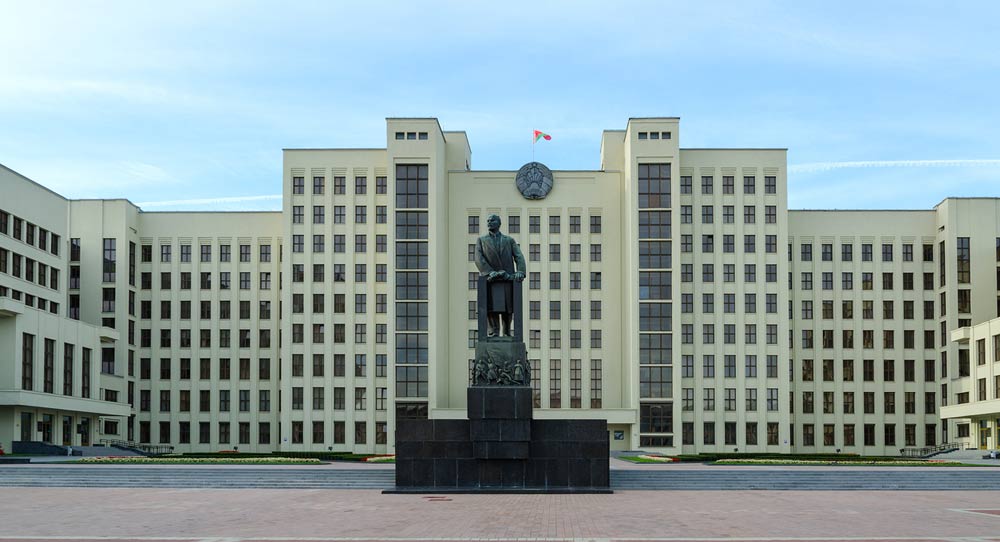EU-Belarusian relations seem to be approaching another critical juncture. Images of police brutality against protesters in Belarus are all over Western media, after several years of liberalization in the country. The level of savagery that law enforcers demonstrated is much lower than in previous clashes. Nonetheless, some voices are again calling on the EU to consider punitive measures.
The two sides underwent this cycle before, and the EU can learn from its own experience. Instead of being concerned about ways to punish Belarusian President Alexander Lukashenko, the EU should be rationally looking for answers to other crucial questions. That should involve smart engagement with the regime.
For the time being, new EU sanctions look improbable, as both Minsk and EU capitals have invested a lot in the normalization of relations after their previous freeze—and for important reasons. However, if protests in Belarus persevere, the authorities will likely continue to limit citizens’ freedoms. And then the question of how the EU should respond will gain further relevance.
Many in the EU see current developments as a test for the incumbent regime. Has it or has it not become less repressive? Will it abstain from egregious violations of human rights? The logic of these questions implies that if Lukashenko has not changed, the EU needs to punish him.
There is a problem with such logic. Anyone who expected the regime to behave differently under the existing circumstances has misunderstood the realities on the ground and Lukashenko’s character.
The president himself defines his regime as authoritarian. Yes, he keeps promising gradual democratization. But it would be naive to expect a fundamental change within two or three years, especially as the EU has meager channels and instruments of influence in Belarus.
All Belarus watchers should also be aware of Lukashenko’s personality traits. When under pressure (as is the case today), he always refers to the same methods of control and suppression of potential political threats. By contrast, when he does not feel pressurized, he is more likely to make flexible decisions and listen to alternative opinions.
What is more, the level of trust between Minsk and Western capitals remains low. Lukashenko keeps repeating that in February 2014, EU ministers mediated a deal between Ukraine’s then president Viktor Yanukovych and opposition but did not lift a finger to protect Yanukovych when the Euromaidan antigovernment demonstrations forced him to leave the country. No doubt, this shapes Lukashenko’s thinking and actions toward the EU and current protests in Belarus.
Therefore, what is happening now in Belarus is no surprise. And it does not make sense to keep wondering whether Lukashenko has changed, as such thinking distracts attention from the crucial issues. When the regime resorts to repression, what EU reaction will work best for the 9.5 million Belarusians? What will work best for the sovereignty of Belarus? And what will work best for long-term EU-Belarusian relations?
Answering these questions is essentially a choice between two options: sanctions and continued engagement. Neither looks ideal. But engagement is more rational and conducive to strategic goals.
Sanctions as a tool have been widely criticized in policy and academic debates. Besides general arguments about why sanctions fail to deliver intended results, there are important factors specific to Belarus. For sanctions to work, they need to empower agents of change internally. Opposition and societal groups have to be able to turn sanctions’ impulses into political capital and therefore force a regime to change course. As years of previous sanctions have shown, this simply does not happen in Belarus, where the opposition is marginalized and mired in infighting.
Actually, the opposite effect has been observed: EU sanctions help further marginalize the idea of change. Ask representatives of Belarusian NGOs working in the country (not those based abroad) under which conditions it is easier for them to operate—sanctions or engagement—and the answer will be unequivocal. All sanctions do is provide additional arguments for hardliners in the regime to freeze meaningful public activities. Civil-society life is then restricted to what is commonly dubbed the opposition ghetto.
Importantly, no idea of reform and democracy or historical memory unites Belarusian society as it did in Central and Eastern Europe in the 1980s and 1990s. While sanctions only aggravate the ghetto problem, engagement at least facilitates some openness from the government and stimulates it to cooperate with both the EU and Belarusian civil society.
Even a commonplace counterargument that sanctions force authorities to free political prisoners (which Belarus does not have at the moment) is not convincing. There is no evidence of that. In the past, the regime released prisoners only as a result of negotiations with the West. Moreover, talks and engagement helped prevent more criminal cases against the opposition.
Smart engagement also contributes to creating dependencies and effective leverage, which increase the costs of misbehavior for the regime. But this needs time and persistence. Finally, the EU’s presence—through investment, networks, and stakeholders—will be a crucial factor for determining the country’s geopolitical future. While Russia is threatening to withdraw capital from its projects in Belarus if Minsk does not accept certain conditions, now might be the right time for Europeans to explore new opportunities.
With all these arguments in mind, the biggest challenge today is for the EU to avoid being carried away by emotions. Europeans need to learn lessons of the past.
Yauheni Preiherman is head of the Minsk Dialogue Track-II Initiative and a PhD researcher at Warwick University.








